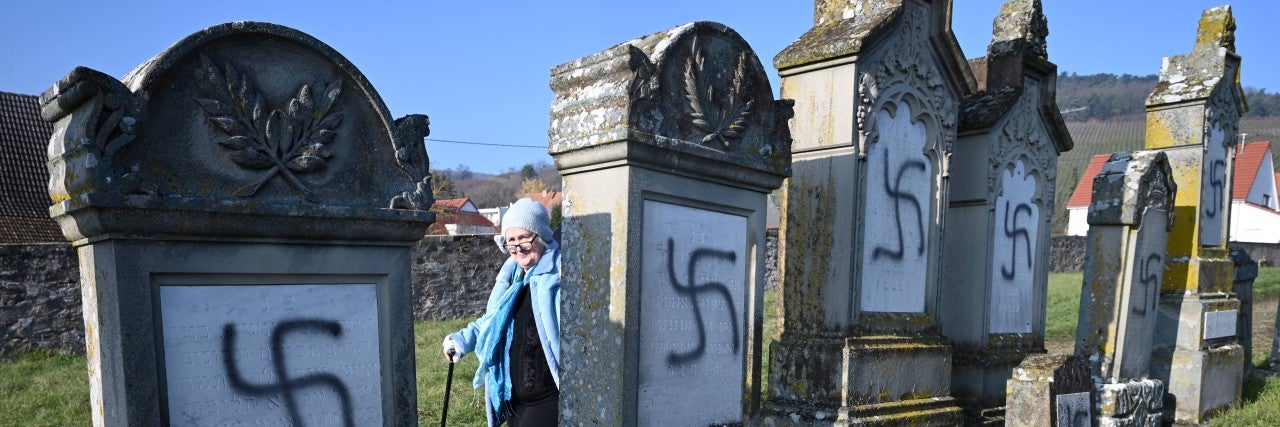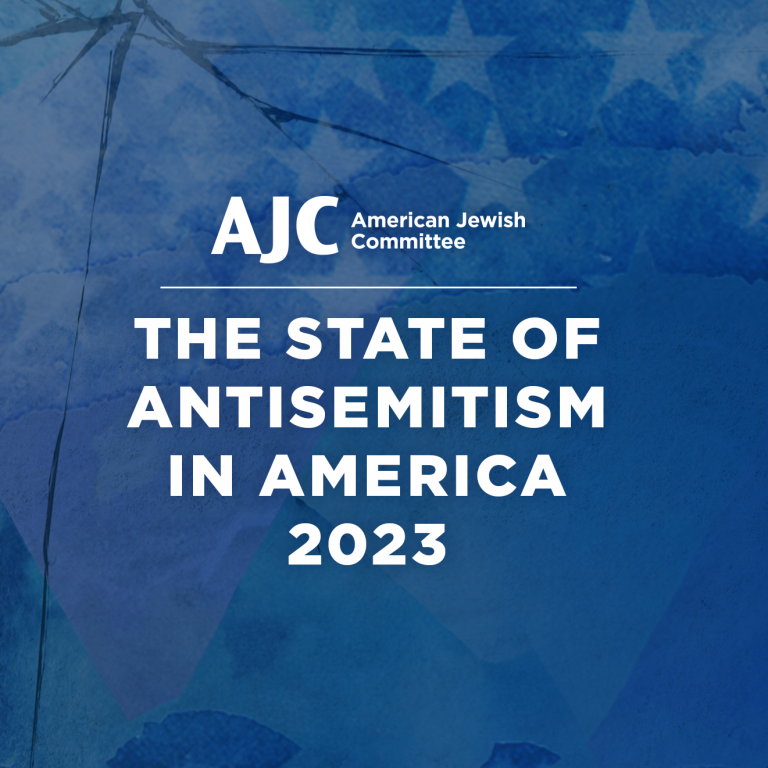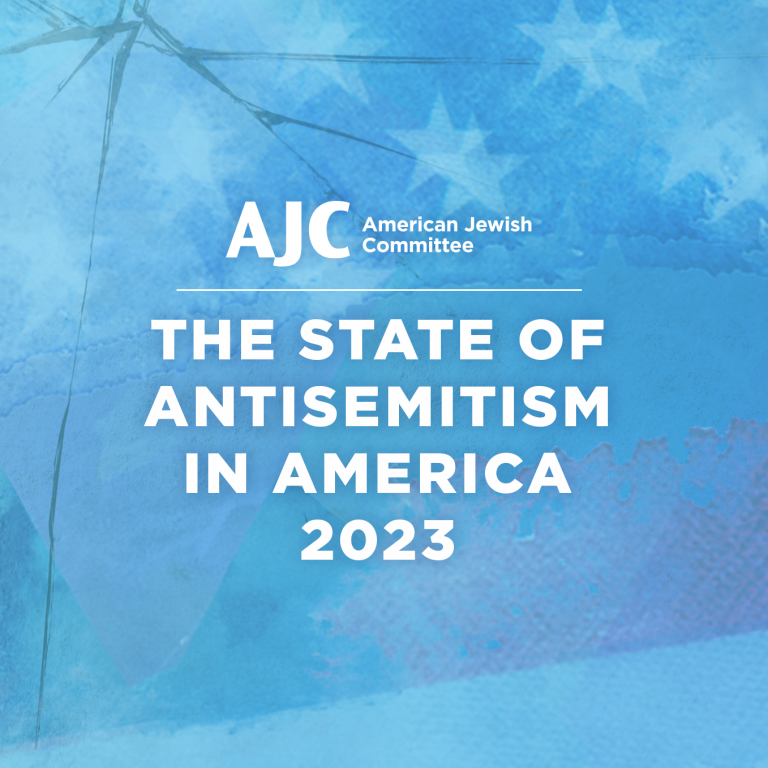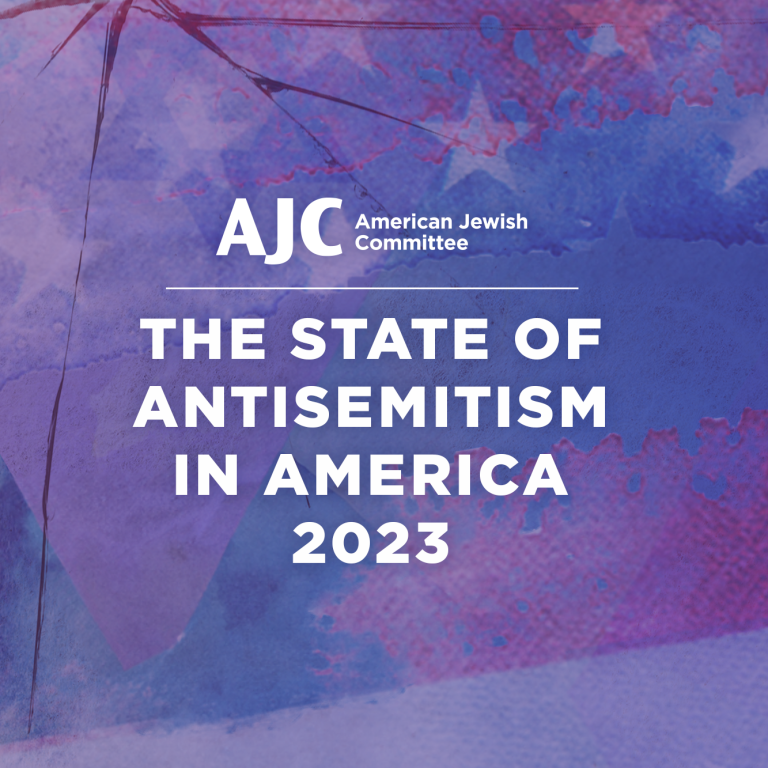March 1, 2024
The following column by Eran Hazary, AJC Associate Director, Mountain Region, appeared in the Denver Gazette.
From a large swastika being burned into a picnic table outside Steamboat Springs High School, to Jewish symbols being ripped off the doors of student housing at the University of Denver, to bomb threats of synagogues and Jewish institutions, it has become apparent that antisemitism is a Colorado problem.
But amid that ugliness and bigotry, there is hope, which emerges from the State of Antisemitism in America 2023 Report from American Jewish Committee (AJC). It reveals that Americans, by an overwhelming margin, recognize that antisemitism is a problem in the U.S., and that it is a problem for society as a whole, not just for Jews.
That antisemitism is rising might seem obvious to Jewish Americans, who while accounting for just 2% of the U.S. population, are the victims of 60% of religious-based hate crimes in the country, according to the FBI. And the tsunami of antisemitism and anti-Zionism that has washed over this nation since the Hamas terror attack on Israel four months ago, will undoubtedly swell that number.
A cursory look at world history would also show you that rising antisemitism is often accompanied by societal problems such as isolationism, sectarianism, the targeting of other minorities and extreme acts of violence.
Nonetheless, if we are to rid our country of antisemitism, it is a positive development that neighbors recognize the problem and are committing themselves to be part of the solution.
Almost three-quarters of the general population (74%) say antisemitism is a problem (very serious or somewhat serious) in the U.S. today. In fact, in just one year, there has been a 12-percentage-point increase in U.S. adults who say antisemitism is a “very serious” problem: 34% in 2023 compared to 22% in 2022.
Knowing someone who is Jewish has an impact on their assessment — 62% of those who know someone who is Jewish say antisemitism has increased compared with 44% of those who do not know anyone Jewish, another sharp increase from 2022 when 52% and 37%, respectively, said the same.
While rising antisemitism has caused many Americans to take notice, it has led Jewish Americans to hide. According to the AJC report, almost half of American Jews (46%) have changed their behavior out of fear of antisemitism.
In fact, since the Hamas attack of Israel on Oct. 7, and the subsequent rise in antisemitism on streets and campuses throughout the U.S., 8 in 10 American Jews (78%) said the attacks made them feel less safe as a Jewish person in the U.S.
Young American Jews, in particular, are experiencing antisemitism personally, with 36% of Jewish adults under 30 reporting they were the personal target of antisemitism compared to 22% above age 30.
In universities, 1 in 5 (20%) Jewish students reported feeling or being excluded from a group or event because they are Jewish — an 8-percentage-point jump from one year ago, while 17% said they reported feeling or being excluded from a group or event because of their perceived or actual connection to Israel.
As a Jew, I am eternally grateful to have allies in the fight against antisemitism. I know from experience that we cannot do it alone. As antisemitic incidents and hate crimes climb year over year, more than 9 in 10 U.S. adults agree that antisemitism affects society as a whole, and everyone is responsible for combating it. One in three (33%) of U.S. adults reported having spoken out against antisemitism.
AJC has a Translate Hate glossary, which explains when nearly 60 terms are or could be antisemitic. When people realize a word or phrase is not a harmless joke but is quite hurtful, most are chastened to find its true meaning. They don’t seek out hate. Rather, they want to run from it.
Or fight it.
When 74% of U.S. adults surveyed say antisemitism is a problem in the U.S. and that 92% say that antisemitism affects society as a whole and everyone is responsible for combating it, it tells Colorado’s Jewish community it is both seen and heard.
The world changed for the Jewish community on Oct. 7, and many of the sobering numbers in the State of Antisemitism report reflect that.
Antisemitism might be the world’s oldest hatred. But we must not let it become our new normal.





